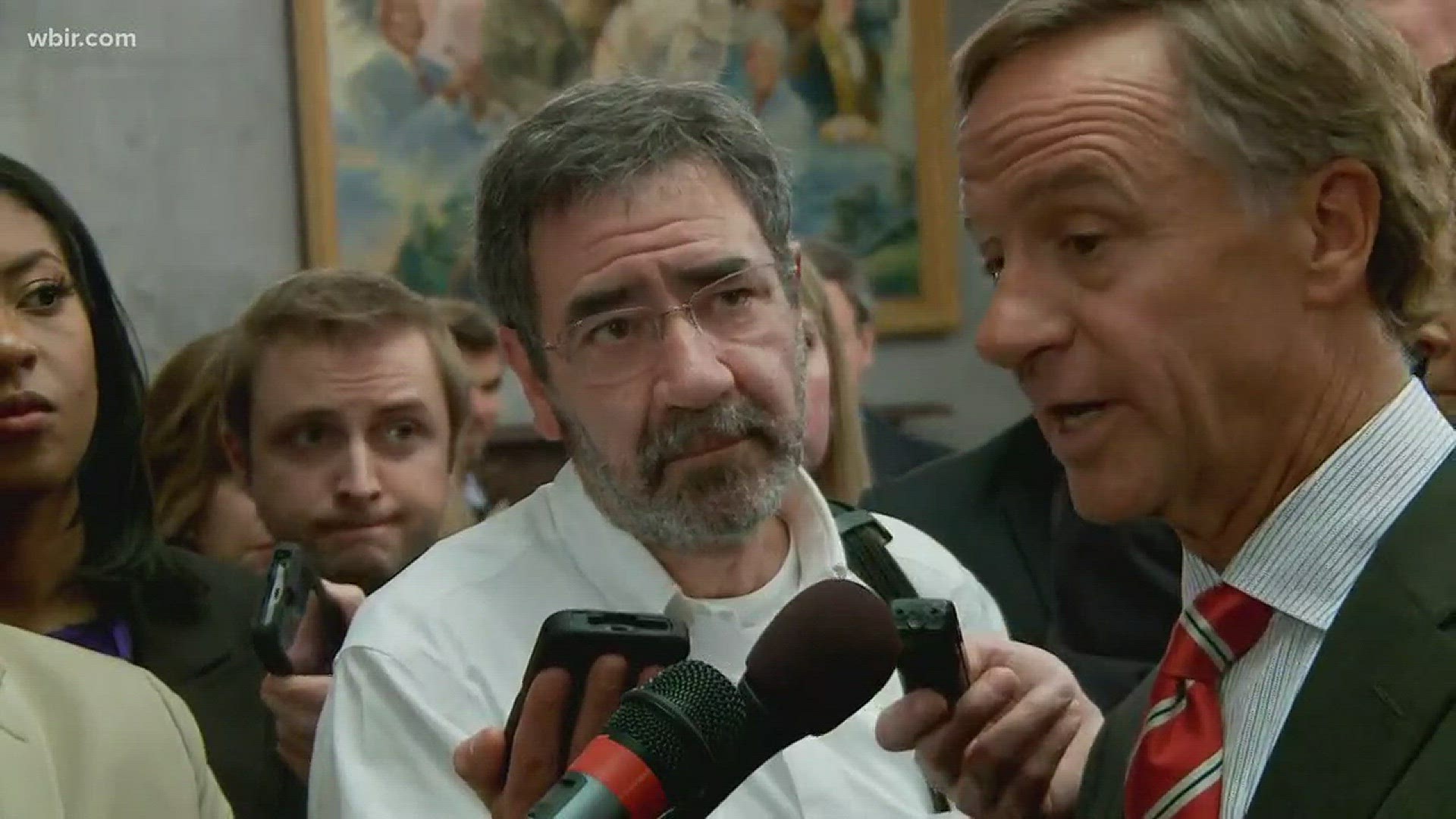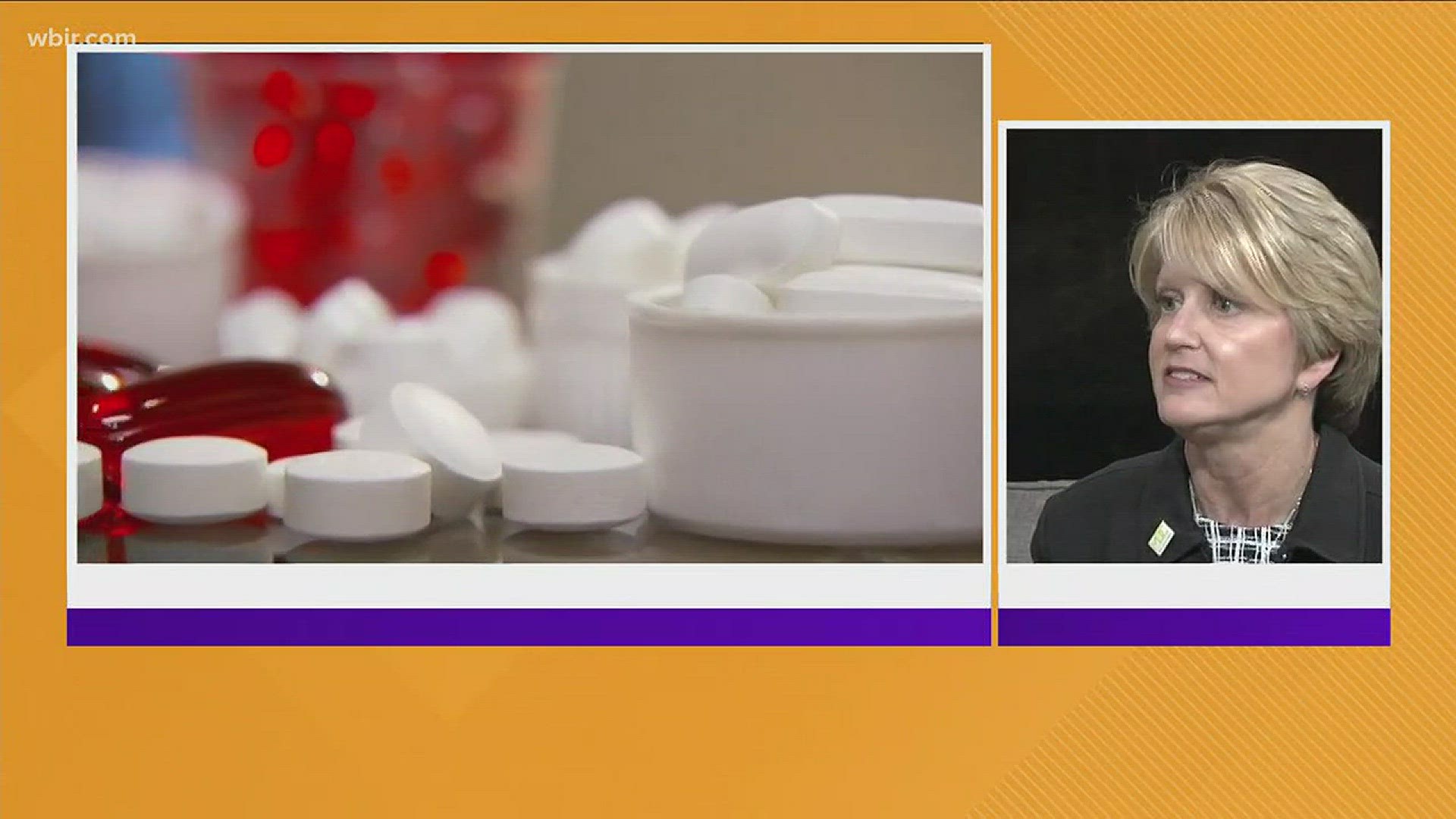Educating children, making overdose-reversing drugs available to all state troopers and adding hundreds of prison beds to treat those fighting opioid addiction are part of Gov. Bill Haslam and legislative leaders' comprehensive proposal to combat the epidemic.
The proposal, set to be released Monday afternoon, comes as Tennessee continues to fight the ongoing crisis, which now claims more lives than car accidents. More than 1,600 residents died from drug overdoses in 2016.
The plan — dubbed "TN Together" — will consist of three main components: prevention, treatment and law enforcement.
On the prevention side, the proposal includes a public awareness campaign and new K-12 education standards to include opioid abuse and addiction prevention.
Beyond education, the plan also seeks to make changes to opioid prescription doses, including setting caps on prescriptions.
In terms of treatment, the proposal will seek to add more than 500 beds to the state's West Tennessee prison, while expanding drug treatment services. It also calls for the creation of a drug treatment program that would allow inmates who completed it to receive a reduced sentence.
The plan also calls for comprehensive changes for law enforcement. They include adding new Tennessee Bureau of Investigation agents specifically tasked with fighting the opioid crisis, as well as providing all state troopers with naloxone – the drug that reverses or blocks the effects of opioids after an overdose.
New recovery compliance courts are also included in the proposal.
It is not yet clear how the various components of the overall proposal will be funded.
The comprehensive proposal comes after months of discussion among state officials, including lawmakers, on how to combat the ongoing crisis.
Last year, a bipartisan legislative task force convened by House Speaker Beth Harwell, R-Nashville, made a host of recommendations, including:
- Adding 25 agents to the TBI;
- Establishing a commission to combat drug abuse; and
- Creating a consistent approach to determining drug overdose deaths
The opioid plan is among Haslam's top legislative priorities for the session and will likely be prominently featured in the governor's final State of the State speech, which is set for Jan. 29.
Haslam, Lt. Gov. Randy McNally, Harwell and Chief Justice Jeff Bivin are set to outline the plan in a joint news conference at 2 p.m. CT inside the Old Supreme Court Chamber on the first floor of the Capitol.
Ahead of the news conference, Tennessee Democratic Party chair Mary Mancini said any effort to address the opioid crisis needs to begin with expanding Medicaid under the Affordable Care Act.
Reach Joel Ebert at jebert@tennessean.com or 615-772-1681 and on Twitter @joelebert29. Reach Anita Wadhwani at 615-259-8092, awadhwani@tennessean.com or on Twitter @AnitaWadhwani.
Original story
Gov. Bill Haslam will announce a state plan on Monday to combat the opioid epidemic.
The governor's office said Haslam will present a joint state plan to "aggressively and comprehensively address the opioid crisis in Tennessee."
He will be joined by Lt. Gov. Randy McNally, House Speaker Beth Harwell and Chief Justice of the Tennessee Supreme Court Jeffrey Bivens. The announcement will be held at the State Capitol in Nashville Monday at 3 p.m. Eastern time.
The governor's office said the plan will focus on prevention, treatment and law enforcement.
In 2017, 294 people died of a suspected overdose in Knox County alone.
There have been 22 suspected overdose deaths in Knox County so far this month, according to the Knox County District Attorney General's office.


